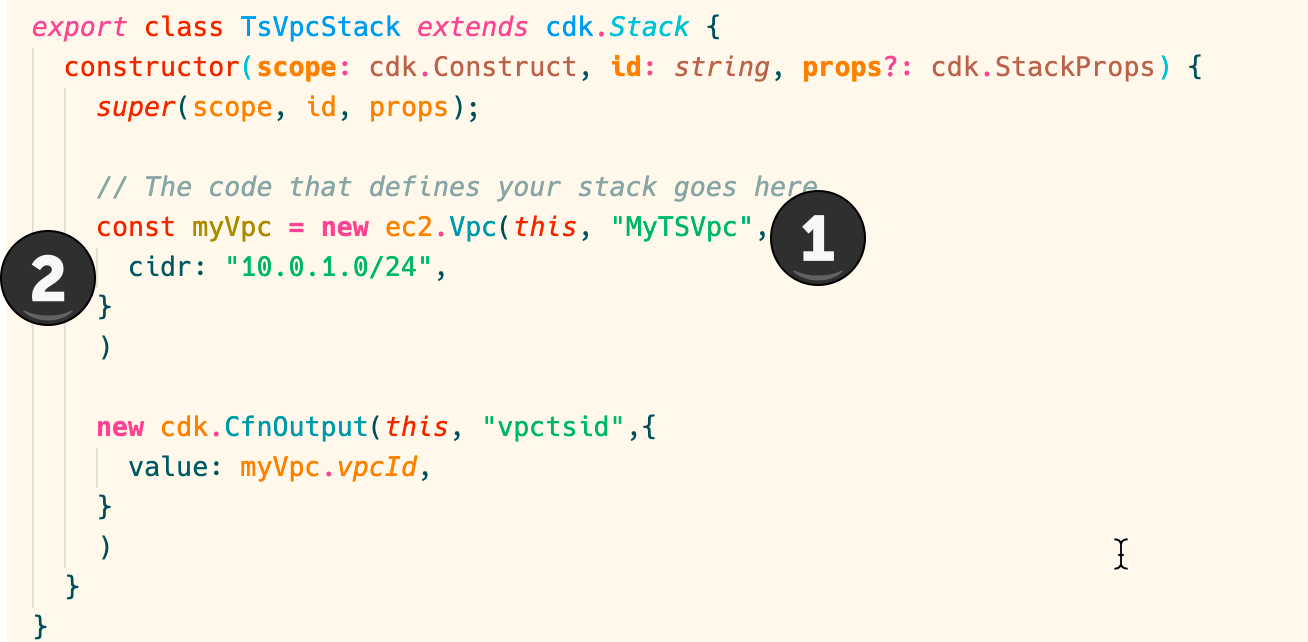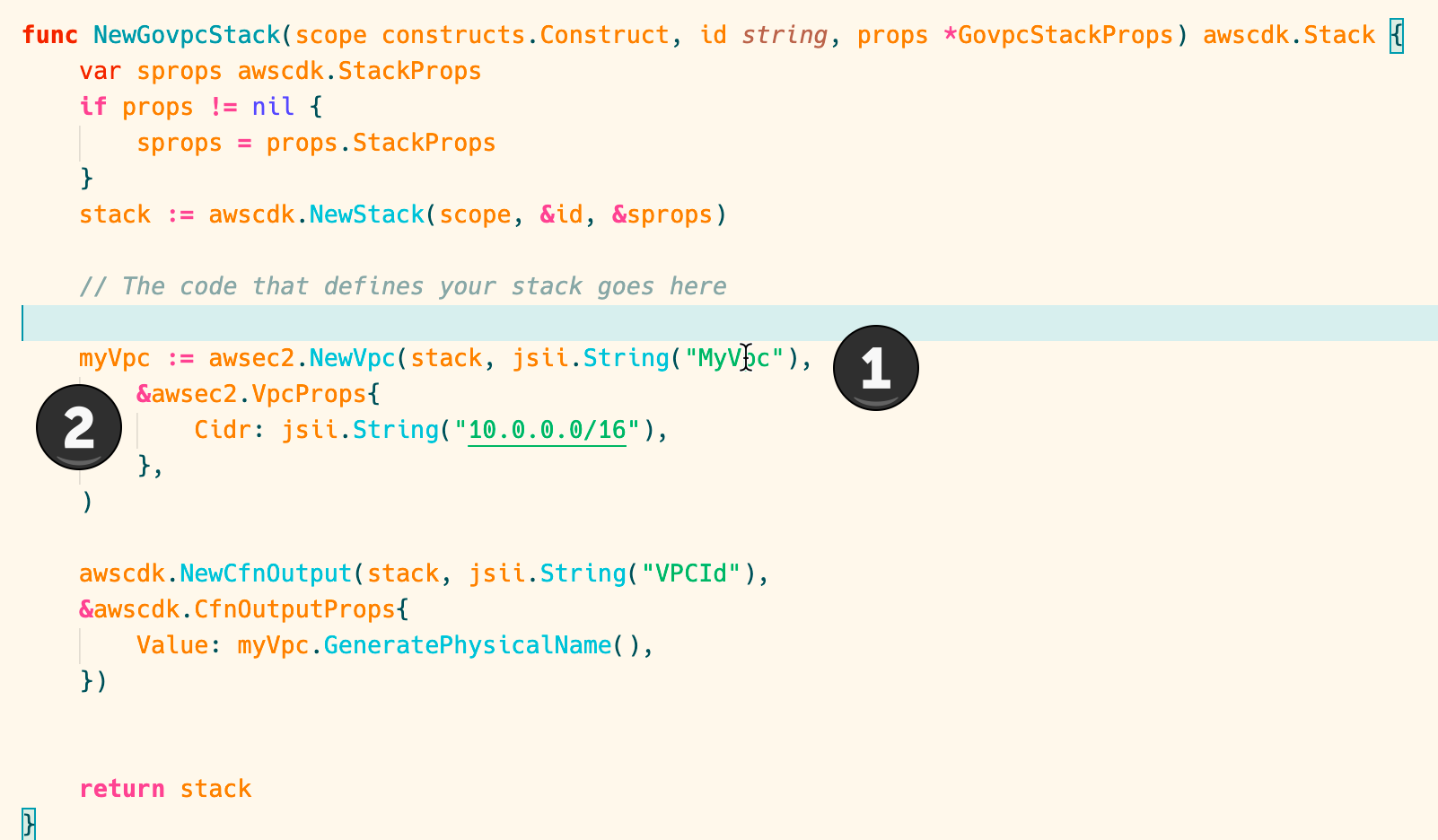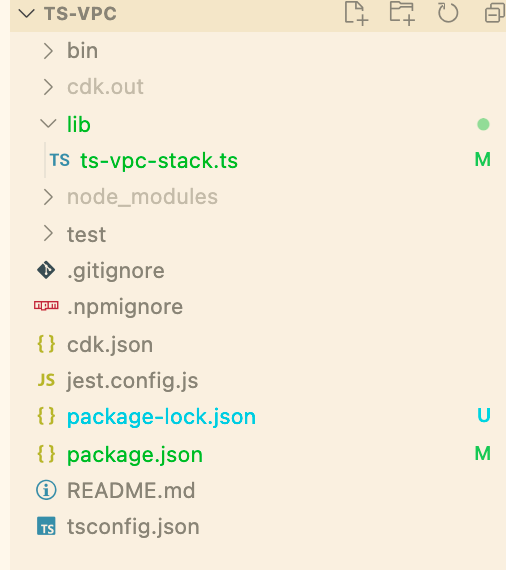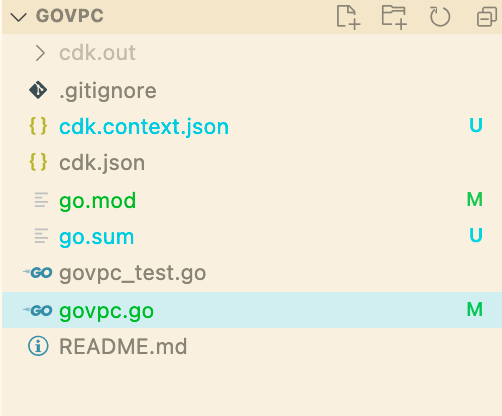Easy going - programming AWS Resources with the CDK in GO
CDK GO is in preview, here are the pros and cons and a first VPC example
TL;DR The GO module system is IMHO neater than node.JS or Python. But you have to get used to the strongly typed language GO.
Init App
In CDK you generate the app skeleton with a single command. The generation of the GO app is really fast ( under one second):
mkdir go-vpc && cd go-vpc
cdk init app --language=go
Files
| Name | Description |
|---|---|
| cdk.json | the usual cdk configuration |
| go-vpc.go | this is the single app file |
| go-vpc_test.go | testing, called with go test |
| go.mod | this is the go package configuration |
| README.md | all you need to know |
Import constructs for VPC
You change the “sns” import to ec2 in the import section of go-vpc.go (line 5):
3 import (
4 "github.com/aws/aws-cdk-go/awscdk"
5 "github.com/aws/aws-cdk-go/awscdk/awsec2"
6 "github.com/aws/constructs-go/constructs/v3"
7 "github.com/aws/jsii-runtime-go"
8 )
You may download each import with:
go get github.com/aws/aws-cdk-go/awscdk/awsec2
Or you get all imports automatically with
go mod tidy
Or you just let the CDK handle that!
The app configuration in cdk.json is:
"app": "go mod download && go run go-vpc.go",
go mod download- this handles all importsgo run go-vpc.go- this compiles and runs the app
So, if you just start a cdk diff or cdk ls, all modules will be downloaded.
More information about the GO module system gives: go mod help.
Define VPC
Do I have to mention where?
Just add some code after // The code that defines your stack goes here
awsec2.NewVpc(stack, jsii.String("MyVpc"),
&awsec2.VpcProps{
Cidr: jsii.String("10.0.0.0/16"),
},
)
Call diff
cdk diff
Call deploy
cdk deploy
That was easy :) .
No npm or pip actions, just define import settings and go (pun intended)
Differences to TypeScript
TypeScript is strongly typed
In TS the VPC definition looks like this:

- Strings
- Most strings are - strings
- properties
- TS knows that
{ cidr: "10.0.0.0./16" }is a valid VPC property. But you could add properties that are not valid. - the property values are just - strings
GO is really strongly typed
In GO the type system much more rigid:

- String pointer Just like in the AWS GO SDK with the “aws.String” helper, jsii helps you in converting the “MyVpc” string to a string pointer
The definition of the NewPVC is:
func awsec2.NewVpc(scope constructs.Construct, id *string, props *awsec2.VpcProps) awsec2.Vpc
So id is a “*string”, which means an pointer to a string. Usually, you would have to do:
myid := "MyVpc"
...
awsec2.NewVpc(stack, &myid...)
- You have to define explicitly define that vpc props are VpcProps. This may seem overly complicated, but it enforces the right properties and makes some IDE help easier to implement.

TypeScript is an addition to JavaScript
And so we have some more files just for the TypeScript Compiler (tsconfig.json) and the external testing system (jest).

GO has all included
With GO you have fewer files:

Fast » slow » Virusscan
I was a little bit disappointed that go cdk is not faster, but much slower than typescript. But as it turned out, not GO is to blame, but my Virus Scan module. So i checked the timing on AWS cloudshell (tm). With cloudshell you just have to install go 1.16, because yum still has go 1.15.
| Environment | Language | Command | Time |
|---|---|---|---|
| Mac with Sophos Virus | go | cdk diff | 20 sec |
| Mac with some Scan disabled | go | cdk diff | 10 sec |
| Mac with Sophos Virus | ts | cdk diff | 7 sec |
| Mac with some Scan disabled | ts | cdk diff 3 sec | |
| cloudshell | ts | init app | 33 s |
| cloudshell | ts | npm i @aws-cdk/aws-ec2 |
10 sec |
| cloudshell | ts | cdk diff |
7 sec |
| cloudshell | go | init app | 1 s |
| cloudshell | go | cdk diff first time |
30 s |
| cloudshell | go | cdk diff second time |
7 s |
Ready to go
Again the CDK team and contributors around the world have done a tremendous job!
With CDK go the package handling is much more smoother and if you get used to the really strong type system, maybe you should give it a try!
Thanks to
Photo by Balkouras Nicos on Unsplash
